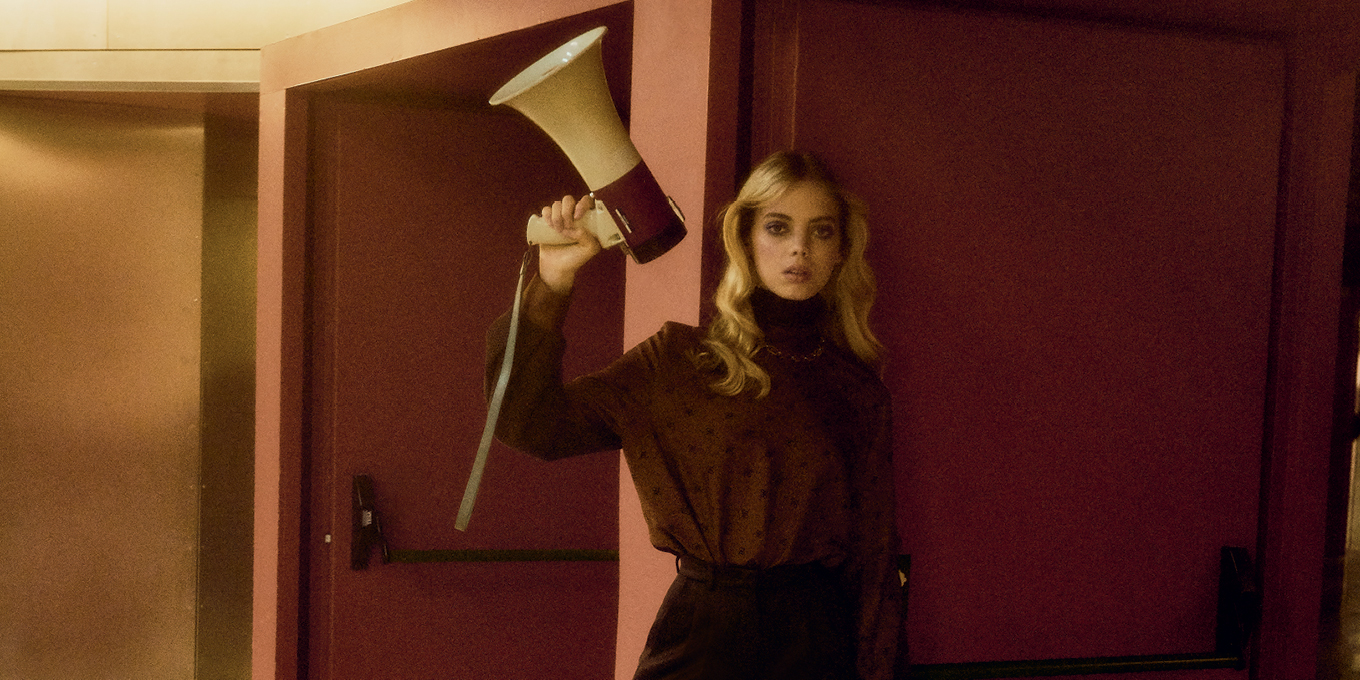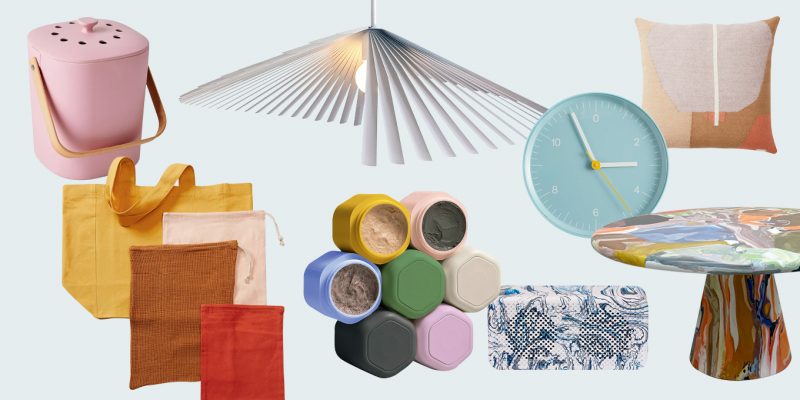Society
Prominent Women in Public Office Say That Systemic Sexism Needs a Political Shakedown
Collectively tackling racism and sexism hasn't been a priority in this country.
by : Wendy Kaur- Jan 5th, 2021

Trunk Archive
During a question period in the House of Commons in 2018, Minister of International Development Karina Gould’s impassioned remarks were quickly followed by a dismissive comment from a male MP. “It looks like Gerald Butts [former top adviser to Justin Trudeau] has found another ventriloquist act to perform with,” he said, implying that she was nothing more than a puppet to the prime minister. “It was an overtly sexist comment that was made toward me,” Gould tells me in late August after a day of meetings. “I couldn’t accept that kind of language.”
This sort of commentary has been commonplace throughout Gould’s career. “In Canadian politics, sexism can be hard to call out because it isn’t necessarily overt,” she says. “You’re left feeling like ‘I’m pretty sure you said that to me because I’m a woman, even though you didn’t say “because you’re a woman.”
In fact, when Chrystia Freeland became the country’s first female finance minister in August, skepticism swirled in political circles and on social media about whether she could handle the job. “Previous male ministers of finance didn’t receive those questions,” Gould points out. This kind of innuendo purposely places doubt on women’s capacity and capability, she says. “It’s 2020; how are we still disputing whether women are ‘up to the job’?”
While U.S. senator Kamala Harris’ ascendancy is a hit for the history books and Freeland has proven her prowess, individual wins can’t overshadow the abuse that is also ratcheting up. In fact, over the past few months alone, several women in public office have been criminally harassed. A member of MP Catherine McKenna’s staff was harassed at the constituency office, and MPP Lisa MacLeod had to enter police protection (it wasn’t the first time) after receiving threats by email. Also, Ottawa city councillor Laura Dudas’ home was vandalized, which compelled her to issue a statement. “There are too many reports of women politicians being the recipients of vicious online abuse [and] derogatory comments about their gender, and when online vitriol spills into the real world, [it results in] violent physical attacks,” she posted on Twitter in August.
The foundational issue, says Nahanni Fontaine, NDP MLA for St. Johns, Man., is that the political system is set up to work against women. Although there has been a gradual increase in female candidates over the past decade, there’s still an underlying fight for which ridings, constituencies and wards they can represent. “When parties start looking to the next election, they’ll often offer women candidates constituencies or ridings that aren’t winnable,” says Fontaine. She adds that every political party knows their stronghold area— which is a guaranteed seat—and far more often than not, male candidates will be approached to run in those areas rather than women. This is particularly true for BIPOC and LGBTQ2S people.
These women have to jump through hoops to receive the nomination and are often cut out altogether from the opportunity to run in an election at any level. For Fontaine, misogyny started on the campaign trail when she had to be escorted out of a building after a debate because the male campaign manager of an opposing party blocked her exit and verbally threatened her. “Right from the get-go, women are discouraged by the system,” she says.
That’s because sexism is a political strategy, says Michelle Rempel Garner, Conservative MP for Calgary Nose Hill. “There’s systemic gender bias in the power structure of Canadian politics,” she says. “The issue of sexism—and harassment— is used for political gain as opposed to [addressing it with] actual policy action.” There’s a lot of “speechification” from leadership about creating a work culture that upholds a code of conduct, but when the time comes to support the people who are working on the political front lines, feminism isn’t always front of mind, says Rempel Garner, who was appointed health critic in federal Conservative leader Erin O’Toole’s shadow cabinet this past September. “I started out in politics nine years ago; I’m still having the same conversation,” she says. “No political stripe is immune to this.”
The problem isn’t that politicians don’t know how to deal with the issues of systemic sexism and abuse, says political analyst Yolande James. “There have been many reports detailing how to make the necessary changes to the system,” she says. “The truth is that until now, collectively tackling racism and sexism hasn’t been a priority in this country. We have this tendency to compartmentalize—it’s a Black issue, an Indigenous issue or a women’s issue—as opposed to admitting that there are societal problems we must address with the same energy we would economic development.”
James, who was the first Black cabinet member in Quebec, says that, like most Black women, she has faced bias “from both ends” because of her race and her gender. She feels that as a country, we are quick to condemn the legacy of sexism and racism that exists outside our borders but are ignorant of our own biases. James cites Marie-Claire Kirkland-Casgrain, the first woman elected to the Quebec National Assembly, as an example. “Even as an elected official, Kirkland-Casgrain could not legally rent an apartment without her husband’s consent,” she says. “This was in the 1960s—not long ago.” If we have any hope of moving forward, we need to fully expose the sexism and racism that is rampant in this country. “The #MeToo and Black Lives Matter movements show that those wounds are coming to the surface.”
Yet the responsibility for creating change continues to fall largely to women. “I’ve gotten more militant and 100 percent less tolerant,” says Rempel Garner, who has been shamed for wearing a dress in Parliament, fielded gender-based insults and received unwanted sexual touching. Rempel Garner is quick to point out that as a straight white woman, she is still in a position of relative privilege and power, making it easier for her to take a stand. “I think of the women who don’t have that,” she says.
An outspoken advocate for Indigenous women’s rights, Fontaine was told by people—from seasoned politicians to staffers in her circle—that she needed to develop a “thicker skin” about sexism or racism directed toward her. “The fact that I was able to get elected in spite of everything I’ve been through in my life, including all forms of abuse, means that, believe me, I have thick skin,” she says. “That argument just diminishes and dismisses the concerns that are brought forward.” The idea that female politicians aren’t cut out for the job if they aren’t able to “handle it” is a patriarchal means of shutting women out and maintaining the status quo, says Fontaine. So she agrees with the zero-tolerance approach. “If you’re going to come after me—whether it’s emails, letters, social media or phone calls—I will make you public,” she says. “It’s not my responsibility to accept that.”
Fontaine’s courage has been received with criticism and threats of violence. “Colleagues and constituents alike tell me I should tone it down or that I’m just trying to be the victim,” she says. “Even when you try to hold people accountable, the blame still goes to you.”
Refusing to silently accept harass- ment—from colleagues or from people on social media—can make you into a greater target, agrees Gould. “This is why a lot of female politicians struggle and why they might feel inclined to ignore it,” she says. “The onus [being] on women to protect themselves from being attacked is wrong—that burden should be on the offender. This is where political leadership bears a responsibility; women need allies across the political spectrum to condemn [this behaviour] as unacceptable.”
There is also no longer any room for complicity, adds Rempel Garner. “Those who might not be overt participants in that sexism or that racism are still benefiting from the system inequity,” she says. “So it is their job to acknowledge that there’s a problem and work toward fixing it if they actually care about equality.”
In 2018, a story broke concerning a former male Conservative colleague of Rempel Garner’s who was accused of sexually assaulting a Parliament Hill female staffer in 2014. “While these allegations weren’t proven in court, the story outlined how senior brass in my party knew about the incident and that it hadn’t been resolved,” she wrote in an op-ed story for the National Post earlier this year. Rempel Garner went to the House of Commons and made a speech that called out the issue as disgusting and, along with some of her colleagues, demanded accountability. As a result, “our party leader announced that an inquiry would be held,” she said in the piece. “It publicly shamed those responsible for the system failure that enabled this situation to arise.”
Rempel Garner believes that her silence would have been a tacit endorsement of the status quo. “I’ve done myself no political favours by choosing to be non-compliant,” she says. “I think I would have been further advanced and would have had more opportunities afforded to me had I stayed silent.”
Women have been treading water for too long, while party leaders refuse to condemn the harassment from their own party members. “It’s a constant fight to achieve [progress] or maintain what we have,” says Rempel Garner. “But we have to [lay] the foundation for success.”
Rempel Garner’s own party has been going through a lot of changes recently. The inquiry resulted in stricter vetting for candidates—including incumbents—as well as a formal process to deal with these types of complaints. But that is the bare minimum needed to enact real advancements. “We have to change our corporate culture—even if there’s a political consequence,” she says. “It’s the right thing to do.”
Read more:
What Psychology Can Teach Us About Imposter Syndrome
Emily Tamfo on How 2020 Became the Year of Letting Go of Lofty Goals
Kamala Harris: Everything To Know About The U.S. Vice President-Elect
Newsletter
Join our mailing list for the latest and biggest in fashion trends, beauty, culture and celebrity.
Read Next

Fashion
Reitmans and The Birds Papaya Just Dropped The Dreamiest Spring Collection
Welcome to Sarah's Playhouse.
by : Melissa Fejtek- Apr 22nd, 2024

Decor
11 Zero Waste Decor Picks To Elevate Your Living Space
These brands are transforming waste materials into stylish products for your home.
by : Maca Atencio- Apr 22nd, 2024

Culture
This University Elevates Women to New Professional Heights
You shouldn’t have to pause your life to move forward in your career.
by : ELLE Canada- Apr 16th, 2024




